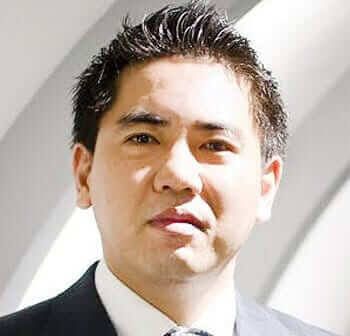Niccolò Machiavelli was a 16th Century Italian philosopher and political commentator, best known for his 1513 work, The Prince. In this infamous work, he outlined guidance on suitable behaviour for royals and aristocrats, which essentially extended to the premise “the ends justify the means”. In other words, rulers’ immoral, cruel and criminal actions are justified if their glory and honour are preserved. Interestingly, some contemporary writers have referred to Machiavelli as the father of modern political philosophy and political science1.
Machiavelli considered the jostling for the power of Italian political leaders of the time as “a matter of fact” to be acknowledged, rather than a measure of one’s morality2. A such, his writings ran counter to the outward teachings of the Christian Church. Rather than resorting to idealistic “imagined republics and principalities” Machiavelli seemed to base his philosophy on “effectual truth.”; he encouraged 16th Century rulers to control their fortune “gloriously” and wield their power despite the upheaval and lawlessness that it may bring about.
Machiavelli justified his position by asserting that it was better to be feared than loved, to become the personification of immorality than risk relinquishing one’s power and control. He said that a ruler who, in establishing a kingdom, commits atrocities should be excused when their intention is honourable and the results are beneficial.
“And here comes in the question whether it is better to be loved rather than feared, or feared rather than loved. It might perhaps be answered that we should wish to be both; but since love and fear can hardly exist together, if we must choose between them, it is far safer to be feared than loved.” — Niccolò Machiavelli, The Prince
As noted by Robert Greene in his book The 48 Rules of Power3, Royal Courts of the time imagined themselves to be the epitome of cultural refinement, fairness, and morality. However, behind the curtain of religious idealism, members flirted with deception, treachery and criminal activity. Overt moves to power were frowned upon, so courtiers devised new elaborate and underhanded ways to satisfy their greed, envy, and lust. Greene writes that the successful courtier managed to outwit his opponents through seduction, charm and deception. Life in the Royal Court was a battle of wills and cunning and required constant vigilance. It was a psychological warzone where losing the fight would usually bring about one’s downfall.
Greene says that today our arrangements must take on the same superficial appearance. In all our affairs, we must seem civilised, decent and fair, not to mention democratic. But if we play by the game’s apparent rules, our opponents will take their advantage and leave us for fools. On the contrary, if we can master the art of deception and seduction, manipulate and carefully outmanoeuvre our contemporaries, we can bend others and circumstances to our will and attain the fruits of power. And in the process, if others fail to realise our true intention, then all the better. We’ve got what we wanted and offended no one.
Is this the true face of human nature? Is everyone out for their own personal gain at the expense of others, and are those who think differently merely setting themselves up like lambs for the slaughter?
Robert Greene says that for some, the notion of playing power games seems evil and runs counter to their ethical human values. He says that such people may choose to opt-out of the game but warns that they are often the most adept players. They cleverly disguise their true intentions and display their weaknesses as a kind of moral virtue. But real weakness or powerlessness will never be openly on display, he suggests. And I can appreciate this view because if we feel less than adequate in any circumstance, then we are most likely to try to keep it hidden than be open about it.
Consider the current dominant narrative in the online world towards sensitivity, humility and vulnerability. Are we really to believe that the writers are sharing their experiences out of true moral virtue, or have they utilised a cunning strategy that garners sympathy for the sake of acknowledgement and personal advancement? Greene seems to think they have, and they take pleasure in the flaunting of their apparent piety and higher moral standing. Wolves in sheep’s clothing, perhaps.
The Pursuit of Wealth & Power
I want to think that human beings are inherently good, but the more I examine the nature of human behaviour, the more I come to realise that some of us are simply bad bastards, and that’s all there is to it. I want to think I am a decent human being too; after all, I’ve never killed anyone. But I could be accused of executing a dastardly deed or two in my time despite perhaps having a good reason. So am I good or bad? Where do we draw the line? Does a line even exist? What gives us the right to cast an opinion on anyone else? Should we play the game and fuck the consequences, or should we strive to attain the highest of human virtue? Are we playing even though we pretend we’re not?
Lots of questions to which I honestly don’t have definitive answers. However, I know that I have boundaries to what I consider ethical business conduct. I also believe that certain personality types are drawn to the kinds of behaviour Greene speaks of. Some people who ordinarily hold themselves to high levels of personal integrity can, under certain difficult conditions, fall foul to these behaviours. Call it a kind of temporary pathology. Machiavellianism exists regardless.
In his book, Greene outlines the 48 laws of the power game, and it is a sobering read. But is this not the world of business in a nutshell? Personal experience tells me that it is. Others I have spoken to anecdotally regarding their business experience have offered a similar view to my own; it is cut-throat. If you’re not on your guard, if you are not a “cute hoor”, as they say where I’m from, then you will be eaten alive. This is how the business world operates, and although there are many clever and well-thought-out hypotheses regarding leadership and aspects of good business etiquette, the everyday reality is very different.
Business is dog-eat-dog, and it plays out as Richard Buckminster Fuller suggested in “the folly of the selfish and fearfully contrived wealth games humanity plays under a misinformed survival-of-the-fittest ideology.” Corporations are the new aristocracies, and their board members are the modern courtiers. They are at war with one another, and all that will stand in their way, yet on the surface, they play the role of the concerned and upstanding organisation. They play the game, which is, as Joel Bakan wrote in 2004, a pathological pursuit of profit and power4. Bakan points out that the modern corporation is a legal institution whose mandate is to pursue, relentlessly and without exception, its own self-interest regardless of the harmful consequences.
As such, Bakan suggested that the modern corporation is a pathological institution. And in his recent publication, The New Corporation, suggests that rather than the situation improving, it has become worse5. The JP Morgan led Business Roundtable comprising CEOs of some of the world’s largest and most influential corporations, Bakan says, have put in place a smokescreen, enacted a marketing exercise by which they may disguise the true extent of their pursuits. Central to his argument is that these same companies, despite their best efforts, are the major cause of the world’s social ills and not, as the Business Roundtable would suggest, a solution.
Have Things Changed?
I believe in some quarters things have changed, but in large part, they have not. Despite any individual’s honest intent to never harm people or the planet, a business’s competitive nature lends itself to deceit and mispractice. The purpose of a business is to make a profit, and if it doesn’t, it must be would up–it ceases to be a viable entity. This is a big problem because that pursuit of more, of power and profit drives otherwise caring human beings to do nasty things. The old saying comes to mind, “you lay down with dogs, you’ll get fleas.”
What can I tell you? If you are in business for yourself or are a corporate executive, the imperative will always to be profitable, and often you will be asked to forgo your sense of rightness to make that happen. I have faced that question also, and I honestly can sympathise with others who find themselves in a similar situation. I can’t offer you a satisfactory answer other than always try not to put yourself in that situation. There are ways to make money and do well in life without being a bad bastard, or indeed, sacrificing your own sense of integrity. Life is too short and too precious for that.
Know your values, visit them daily, make them public and be held accountable for their upkeep. When you are concrete in your personal values and have set boundaries on your own behaviour, it’s harder to break them. As a leader, your job is to reinforce these values with your team and ensure everyone is on board. It is the foundation upon which you’ll build your house. Machiavellianism is alive and well in the 21st Century have no doubt about that, and when it has space to operate, then there will be casualties. I believe that Machiavelli and his ideas belong in the past, and that’s where we should leave them.





























